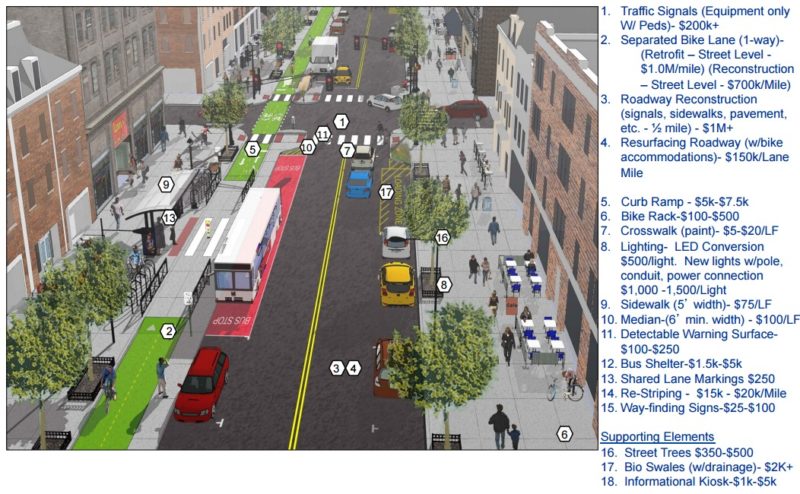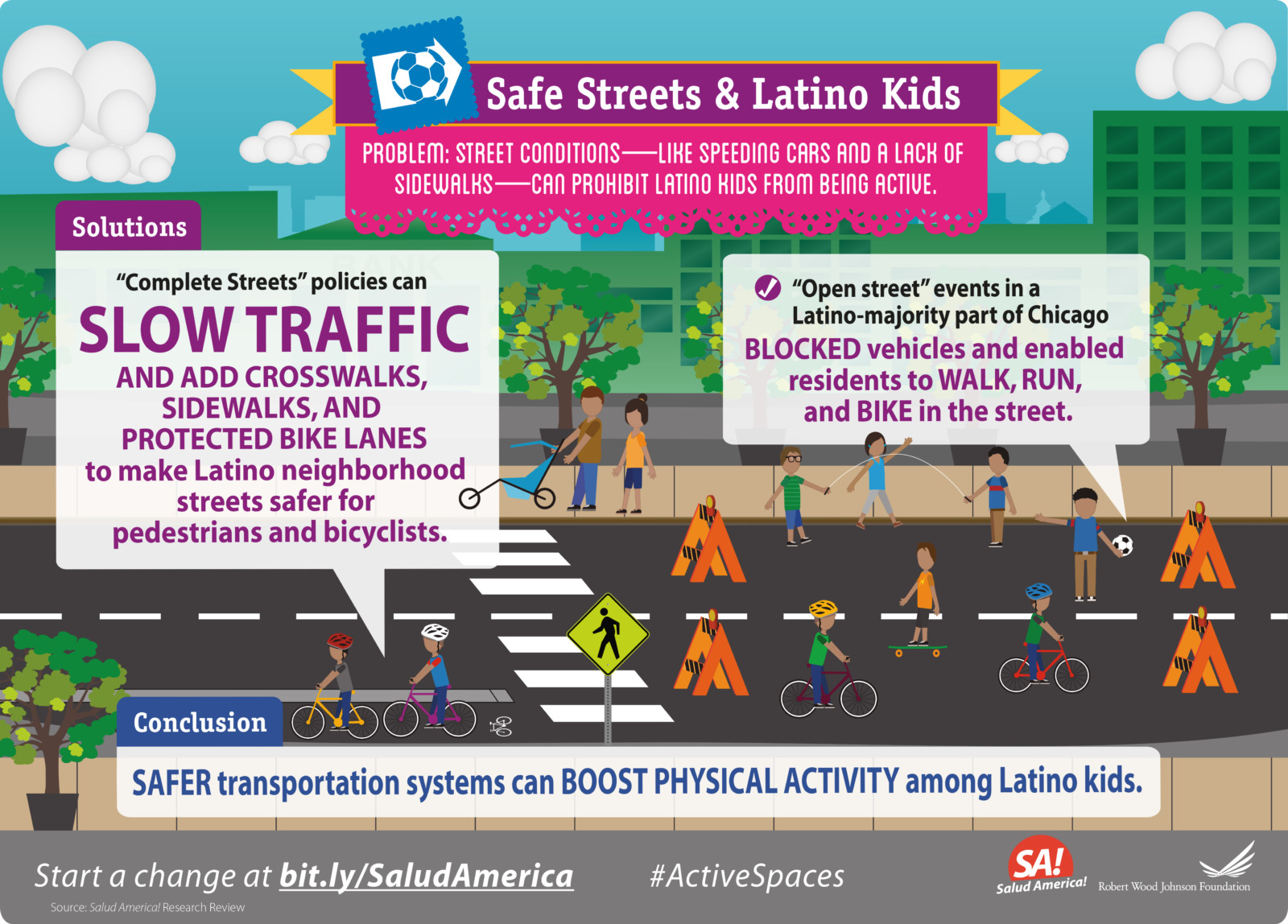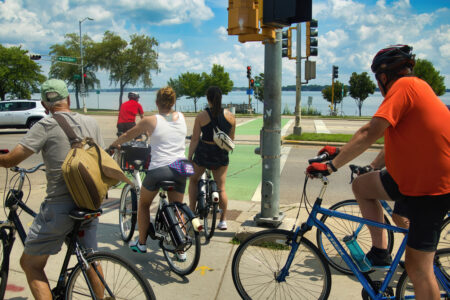
Share On Social!
Does your city, county or state have a Complete Streets policy to promote the safety of drivers, pedestrians, cyclists, and all?
Researchers at the University of Illinois at Chicago would love to know!
You can nominate of public health agencies and advocates who help develop, adopt, and implement Complete Streets policies from 2013-2018 for a “Complete Streets and Public Health” recognition.
Nominations are accepted from now to March 30, 2018.
Why Complete Streets?
Many Latino communities lack safe places to play and be active, according to a Salud America! research review. This can often lead to fewer opportunities to be physically active.
 Complete Streets policies can help.
Complete Streets policies can help.
Complete Streets are equitable for all users—drivers, pedestrians, bicyclists, and commuters alike. They can accommodate multiple forms of transportation.
Communities all across the country are recognizing the value of Complete Streets policies and walkable communities that help everyone incorporate physical activity into their everyday lives. Adding protected bike lanes, sidewalks, trees, and other amenities, communities have more opportunities to be physically active.
For example, check out the Complete Streets policy in San Antonio, Texas, and Pittsburgh, Penn.
Public health agencies are also looking to Complete Streets as a way of working to address air quality, sustainability, and access to community destinations, like grocery stores, employment opportunities and health care.
The Complete Streets Recognition
If you or someone you know is working on Complete Streets, be sure to click here to nominate them as an exemplary example of a Complete Street today!
Nominees also will be considered for inclusion in a “best practices” study to identify lessons learned for communities seeking to engage public health in complete streets policy-related efforts.
By The Numbers
27
percent
of Latinos rely on public transit (compared to 14% of whites).



